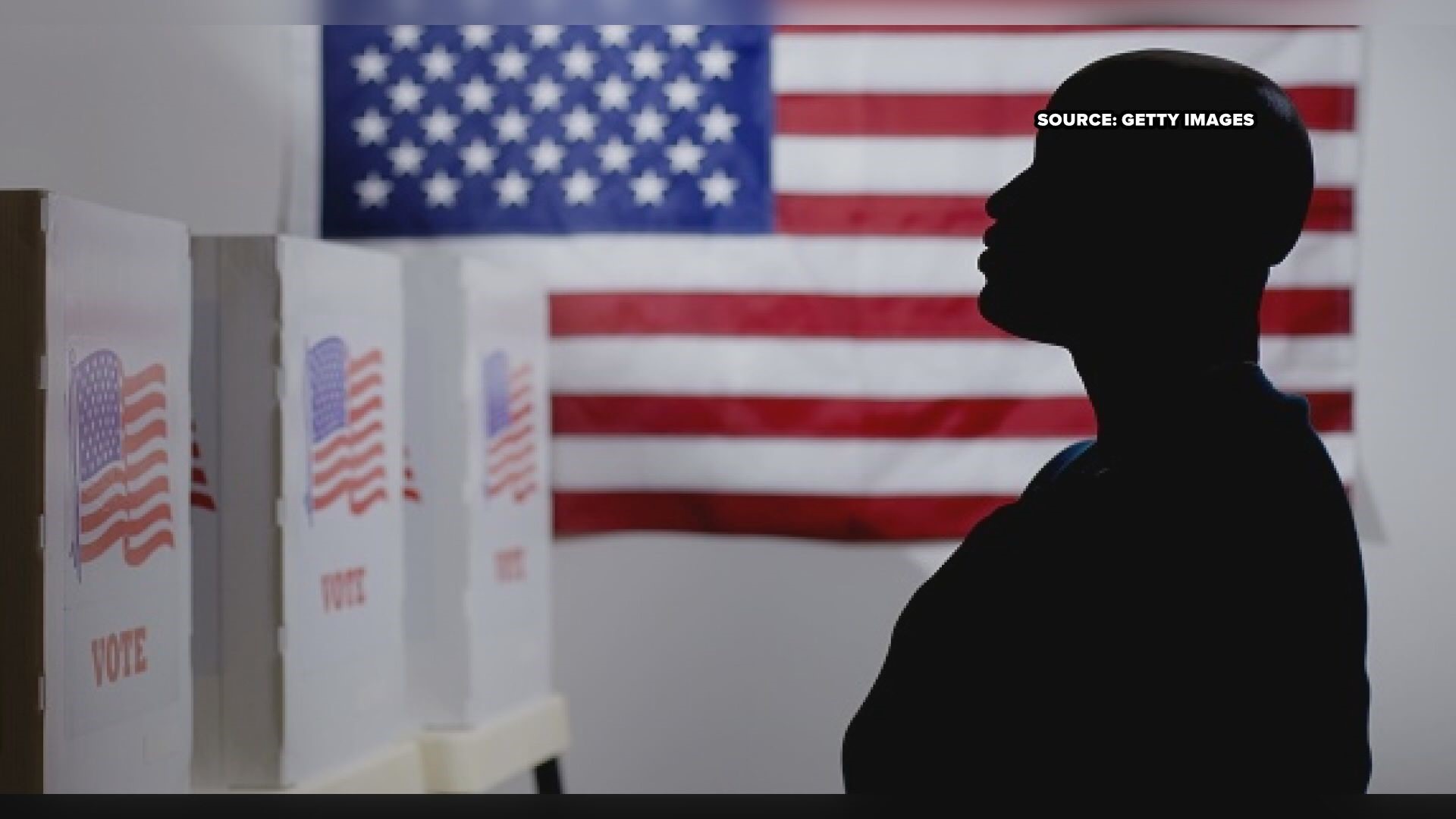GREENSBORO, N.C. — If you're stressed over the race for the White House, you're not alone. A recent survey by The Harris Poll on behalf of the American Psychological Association shows about 68-percent of adults say the 2020 presidential election is a significant source of stress in their life. That's a large increase from the 2016 presidential election when 52-percent said the same thing.
The survey also found the divisive election is stressing a large number of Black people, jumping from 46-percent in 2016 to 71-percent this year. Statistically, racial and ethnic minorities have worse health compared to White Americans due partially to inadequate access to care.
“This has been a year unlike any other in living memory,” said Arthur C. Evans Jr., PhD, APA’s chief executive officer. “Not only are we in the midst of a global pandemic that has killed more than 200,000 Americans, but we are also facing increasing division and hostility in the presidential election. Add to that racial turmoil in our cities, the unsteady economy and climate change that has fueled widespread wildfires and other natural disasters. The result is an accumulation of stressors that are taking a physical and emotional toll on Americans.”
How you respond to stress can depend on your background, social support from family or friends, financial situation, health and emotional background, the community you live in, and many other factors. According to the Centers for Disease Control and Prevention, mental health is an important part of overall health and wellbeing. It affects how we think, feel, and act. It may also affect how we handle stress, relate to others, and make choices during an emergency.
The APA is offering the following evidence-based advice to help people manage their stress related to the election:
- Uncertainty is frequently stressful, and some people are better at dealing with uncertainty than others. The election, the global pandemic and social unrest are all adding to a sense of uncertainty in our lives. Avoid dwelling on things you can’t control. When uncertainty strikes, many people immediately imagine worst-case scenarios. Break the habit of ruminating on bad outcomes.
- Focus on what you can control. If following the news, watching the debates or scrolling through social media is causing you stress, limit your media consumption. Give yourself permission to take a break from the news.
- Engage in meaningful activities. Rather than fixating on news coverage, find an activity that you really enjoy and spend time doing it. Get involved in issues that are meaningful to you. By making a plan on how you will vote, for example — in person, by mail or as part of early voting — you are more likely to follow through.
- Stay socially connected. Go for a walk or spend time with friends and family. Research shows that people who have at least one or two friends or family members to turn to for emotional support during stressful times tend to cope better than people who don’t have such support.
- Stay active. Moving helps us release the energy we experience when we feel stressed.
- Realize that we might not know who won the election on Election Day. If you think this will raise your anxiety, keep busy with things that you enjoy and stay connected to social support so that you aren’t continually checking for what could be viewed as “bad” news.
Call your healthcare provider if stress gets in the way of your daily activities for several days in a row. Free and confidential resources can also help you or a loved one connect with a skilled, trained counselor in your area.
Get immediate help in a crisis:
- Call 911
- Disaster Distress Helpline:1-800-985-5990 (press 2 for Spanish), or text TalkWithUs for English or Hablanos for Spanish to 66746. Spanish speakers from Puerto Rico can text Hablanos to 1-787-339-2663.
- National Suicide Prevention Lifeline: 1-800-273-TALK (8255) for English, 1-888-628-9454 for Spanish, or Lifeline Crisis Chat.
- National Domestic Violence Hotline: 1-800-799-7233 or text LOVEIS to 22522
- National Child Abuse Hotline: 1-800-4AChild (1-800-422-4453) or text 1-800-422-4453
- National Sexual Assault Hotline: 1-800-656-HOPE (4673) or Online Chat
- The Eldercare Locator: 1-800-677-1116 TTY Instructions
- Veteran’s Crisis Line:1-800-273-TALK (8255) or Crisis Chat or text: 8388255
Find a health care provider or treatment for substance use disorder and mental health:
- SAMHSA’s National Helpline: 1-800-662-HELP (4357) and TTY 1-800-487-4889
- Treatment Services Locator Website
- Interactive Map of Selected Federally Qualified Health Centers

